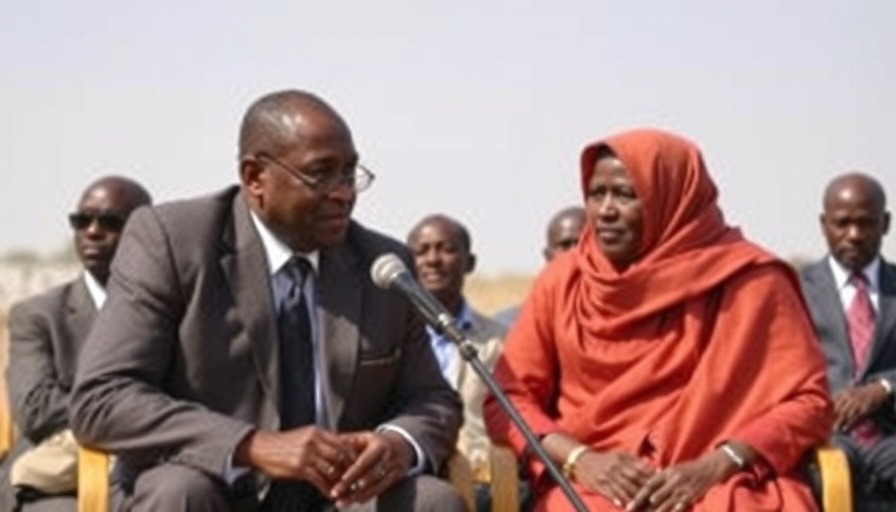
Political Tensions Reach Boiling Point in Mogadishu
In a climate of rising political tensions, Somali President Hassan Sheikh Mohamud finds himself in a precarious position as the opposition intensifies pressure against his administration. Amid widely circulated calls for protest against the government's controversial eviction of squatters from public land, the atmosphere in Mogadishu has turned fraught. Former Prime Minister Hassan Ali Khaire is at the forefront of this anti-government movement, urging citizens to mobilize for demonstrations in response to the government's heavy-handed approach to land reclamation.
The Eviction Crisis and Its Ramifications
The backdrop of this unrest is anchored in decades of land disputes and the dire realities faced by thousands of residents in informal settlements. As reported, many families affected by the evictions have lived in these areas since the collapse of the Somali government in 1991, making them particularly vulnerable. The government’s actions, including forcibly demolishing homes, have led to allegations of systemic land grabbing, particularly against the poor who have sought refuge in the capital. Activists and opposition figures are drawing attention to what they deem as irresponsible governance, calling for accountability and a more just handling of land issues that impact the most vulnerable citizens.
Security Measures and Political Maneuvering
Faced with mounting protests, the administration has taken steps to mitigate unrest. In a twist of fate, planned demonstrations were recently called off after negotiations between opposition members and security officials aimed to ensure public safety. This indicates a precarious balancing act for President Mohamud, as opposition leaders wield increasing influence over public sentiment. With formal elections on the horizon, the government must tread carefully to avoid further escalations that could destabilize Mogadishu and, by extension, the larger socio-political landscape of Somalia.
An Opportunity for Extremist Groups
The ensuing discontent presents a troubling breeding ground for extremist factions like Al-Shabaab, who are already exploiting grievances among the citizenry. Their rhetoric positioning them as defenders of the displaced resonates amid rising socio-economic insecurity. The intersection of governmental neglect and the opportunistic actions of armed groups reveals a volatile cocktail of risks that could further undermine the fragile state of Somalia if unaddressed.
Future Predictions: What Lies Ahead for Somalia?
With political dynamics shifting swiftly, experts predict that the government’s handling of the eviction crisis will significantly impact its longevity. As President Mohamud’s administration grapples with the challenge of restoring confidence among its citizens while quelling opposition voices, the coming months will be critical. Not only will internal stability be tested, but the government's ability to effectively navigate the complexities of Somali society underlines the importance of legitimate governance in addressing the needs of the marginalized.
 Add Row
Add Row  Add
Add 


Write A Comment